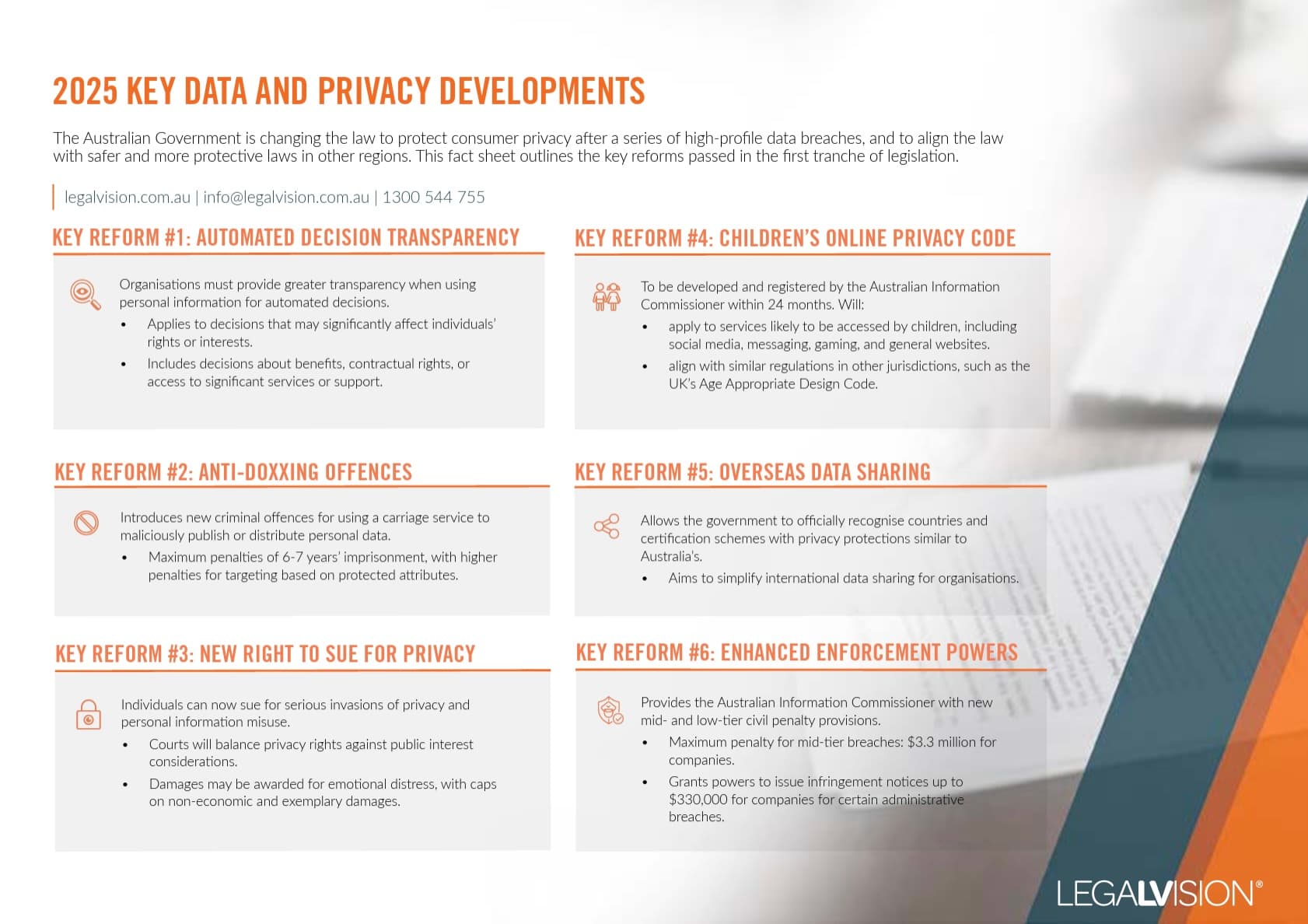Are you setting up a recruitment business and want to know what legal documents you need to get started? While the recruitment industry is ever-changing, you can protect your recruitment business by setting out your legal obligations in three essential documents. Below, we set out what initial documents you should have in place before opening your doors, including a recruitment agreement, a candidate agreement as well as your online documents.
1. Recruitment Agreement
A recruitment agreement will set out:
- the legal relationship between your business and your clients; and
- how you will recruit candidates.
Your Agreement should include the payment structure around the types of fees your client will pay for your services, such as:
- upfront payments for specific actions;
- a placement fee for when you find them a suitable employee; or
- fees based on a percentage of the employee’s salary.
The Agreement should also set out what happens if the employer terminates the employee during a probation period. In that case, you may have to:
- find your client a more suitable employee at no extra cost; or
- offer your client a refund on some of the fees they have already paid.
Cearly setting out termination and dispute resolution solutions within the Agreement will protect you in the event of a dispute.
How Can Recruitment Agreements Protect Your Business?
The Agreement should also include clauses to protect your business. The Agreement might outline:
- warranties that your client will abide by equal opportunity principles;
- warranties that each party will comply with privacy laws and their respective privacy obligations;
- that the employee you recruit for your client will be treated appropriately regarding their remuneration and entitlements; and
- that the employee will only work in a position for which they were recruited and will not be required to perform any unpaid work on a trial basis.
Your Agreement should also include indemnity clauses setting out that your client indemnifies you if you sustain any losses from your client’s breach of contract. The Agreement should operate to limit your liability from any actions you or your staff undertake in respect of your obligations.
2. Candidate Agreement
You will also need an agreement with the candidates you are looking to recruit for your clients. The candidate agreement will set out the candidate’s obligations to provide you with accurate information about the kind of position they are looking for and their skill set and experience. The Agreement should require candidates to provide you with:
- referees; and
- the relevant checks required for certain positions, such as State or Federal police checks.
3. Online Legal Documents
As a recruitment agency, you will likely require a website to assist you with advertising your services and engaging with clients and candidates alike. If you do set up a website, it is essential to have the necessary legal documents in place to protect your business online.
Website Terms of Use
You will require website terms of use and a privacy policy to protect your agency’s website as well as your business in the collection of personal information. Website Terms of Use are designed to apply to all users of your website, not only clients and candidates who engage in your services.
Additionally, the Terms of Use will set out how visitors can use the material on your website as well as any prohibited uses, such as trying to breach the website’s security or uploading offensive information. It will also protect the intellectual property and copyright of the information you post.
Privacy Policy
You will need a privacy policy if you collect personal information from users online, such as their name, email address and other contact details. For a recruitment agency, this is also likely to be CVs and professional referee information. It will also set out how you store a user’s personal information and the circumstances when you will disclose this information to third parties, such as to pass on candidate information to your clients or for marketing purposes.

This factsheet outlines the Australian Government’s strengthened consumer privacy laws in 2025 following major data breaches and their alignment with global standards.
Key Takeaways
Starting a recruitment business means that the primary focus of your business is dealing with and connecting people. Therefore, it is essential to have your legal documents in place that set out the services you provide to your business clients. Additionally, you should ensure that you have the necessary legal documents to protect your business when engaging with clients and candidates through your website. Protecting your business from the get-go with the proper legal documents will ensure you have a strong position moving forward and will set out a clear path to follow if any disputes arise.
If you need help preparing your recruitment business’ legal documents, our experienced contract lawyers can assist as part of our LegalVision membership. For a low monthly fee, you will have unlimited access to lawyers to answer your questions and draft and review your documents. Call us today on 1300 544 755 or visit our membership page.
We appreciate your feedback – your submission has been successfully received.












